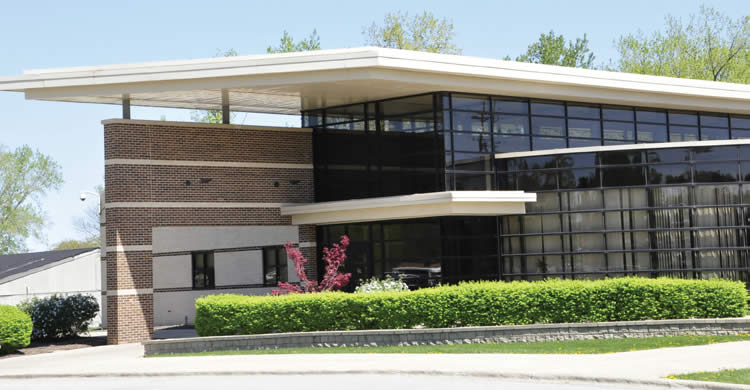Bureau Seeks More than $500 Million In Relief For Borrowers of Corinthian’s Private Student Loans
WASHINGTON, D.C.—(ENEWSPF)—September 16, 2014. Today the Consumer Financial Protection Bureau (CFPB) sued for-profit college chain Corinthian Colleges, Inc. for its illegal predatory lending scheme. The Bureau alleges that Corinthian lured tens of thousands of students to take out private loans to cover expensive tuition costs by advertising bogus job prospects and career services. Corinthian then used illegal debt collection tactics to strong-arm students into paying back those loans while still in school. To protect current and past students of the Corinthian schools, the Bureau is seeking to halt these practices and is requesting the court to grant relief to the students who collectively have taken out more than $500 million in private student loans.
“For too many students, Corinthian has turned the American dream of higher education into an ongoing nightmare of debt and despair,” said CFPB Director Richard Corday. “We believe Corinthian lured consumers into predatory loans by lying about their future job prospects, and then used illegal debt collection tactics to strong-arm students at school. We want to put an end to these predatory practices and get relief for the students who are bearing the weight of more than half a billion dollars in Corinthian’s private student loans.”
The complaint against Corinthian can be found at: http://files.consumerfinance.gov/f/201409_cfpb_complaint_corinthian.pdf
Corinthian Colleges, Inc. is one of the largest for-profit, post-secondary education companies in the United States. The publiclytraded company has more than 100 school campuses across the country. The company operates schools under the names Everest, Heald, and WyoTech. As of last March, the company had approximately 74,000 students.
In June, the U.S. Department of Education delayed Corinthian’s access to federal student aid dollars because of reports of malfeasance. Since then, Corinthian has been scaling down its operations as part of an agreement with the Department of Education. However, Corinthian continues to enroll new students.
Today’s CFPB lawsuit alleges a pervasive culture across the Everest, Heald, and WyoTech schools that allowed employees to routinely deceive and illegally harass private student loan borrowers. Under the Dodd-Frank Wall Street Reform and Consumer Protection Act, the CFPB has the authority to take action against institutions engaging in unfair, deceptive, or abusive practices. Based on its investigation, the CFPB alleges that the schools made deceptive representations about career opportunities that induced prospective students to take out private student loans, and then used illegal tactics to collect on those loans. Today’s lawsuit covers the period from July 21, 2011 to the present.
Lured Into Loans By Lies
Most students who attend Everest, Heald, and WyoTech schools come from economically disadvantaged backgrounds and many are the first in their families to seek an education beyond a high school diploma. According to internal Corinthian documents, most students lived in households with very low income. Today’s lawsuit alleges that the schools owned by Corinthian Colleges, Inc. advertised their education as a gateway to good jobs and better careers. It alleges that throughout the Corinthian schools, consumers were lured into loans by lies, including:
Sham job placement rates: The CFPB alleges that Corinthian’s school representatives led students to think that when they graduated they were likely to land good jobs and sufficient salaries to repay their private student loans. But the CFPB believes that Corinthian inflated the job placement rates at its schools. Based on its investigation, the CFPB alleges that this included creating fictitious employers and reporting students as being placed at those fake employers.
One-day long “career”: According to the CFPB’s investigation, Corinthian schools told students they would have promising career options with an Everest, Heald, or WyoTech degree. But Corinthian counted a “career” as a job that merely lasted one day, with the promise of a second day.
Pay for placement: The CFPB also alleges that the Corinthian schools further inflated advertised job placement rates by paying employers to temporarily hire graduates. The schools did not inform students about these payments or that these jobs were temporary.
Craigslist career counseling: According to the CFPB’s investigation, the Corinthian schools promised students extensive and lasting career services that were not delivered. Students often had trouble contacting anyone in the career services office or getting any meaningful support. The limited career services included distributing generally available job postings from websites like Craigslist.
Predatory Loans
Tuition and fees for some Corinthian programs were more than five times the cost of similar programs at public colleges. In 2013, the Corinthian tuition and fees for an associate’s degree was $33,000 to $43,000. The tuition and fees for a bachelor’s degree at Corinthian cost $60,000 to $75,000.
The CFPB believes the Corinthian colleges deliberately inflated tuition prices to be higher than federal loan limits so that most students were forced to rely on additional sources of funding. The Corinthian schools then relied on deceptive statements regarding its education program to induce students into taking out its high-cost private student loans, known as “Genesis loans.” Today’s lawsuit alleges that under the Genesis loan program:
Interest rates were more than twice as expensive: Corinthian sold its students predatory loans that typically had substantially higher interest rates than federal loans. In July 2011, the Genesis loan interest rate was about 15 percent with an origination fee of 6 percent. Meanwhile, the interest rate for federal student loans during that time was about 3 percent to 7 percent, with low or no origination fees.
Loans were likely to fail: Corinthian expected that most of its students would ultimately default on their Genesis loans. In fact, more than 60 percent of Corinthian school students defaulted on their loans within three years. The Everest, Heald, and WyoTech schools did not tell students about these high default rates. Defaulting on private student loans can have grave consequences for consumers, including affecting a borrower’s job prospects and making it difficult to get any kind of loan for years.
Strong-Armed by Illegal Debt Collection Tactics
Under the Genesis loan program, nearly all student borrowers were required to make monthly loan payments while attending school. This is unusual; federal loans and almost all other sources of private student loans do not require repayment until after graduation. This put pressure on Everest, Heald, and WyoTech students to come up with funding while attending school. Today’s lawsuit alleges that Corinthian took advantage of this position of power to engage in aggressive debt collection tactics. The CFPB alleges that Corinthian’s campus staff members received bonuses based in part on their success in collecting payments from students. The debt collection tactics included:
Pulling students out of class: The CFPB’s investigation revealed that Corinthian’s efforts to collect payments included shaming students by pulling them out of class. Financial aid officers would inform instructors and other staff that students were past due on their Genesis loans. Corinthian schools also required students to meet with campus presidents to discuss the seriousness of the overdue loans. At one Corinthian campus, students and employees referred to one financial aid staff member as the “Grim Reaper” because the staff member so frequently pulled students out of class to collect debts.
Putting education in jeopardy: According to the CFPB’s investigation, the Corinthian colleges jeopardized students’ academic experience by denying them education until they paid up. They blocked students’ access to school computer terminals and other academic resources. The Corinthian schools also prevented students from attending and registering for class, and from receiving their books for their next classes.
Withholding diplomas: According to the CFPB investigation, Corinthian schools informed students that they could not participate in the graduation ceremony or would have their certificate withheld if they were not current on their Genesis loan in-school payments. In many cases, financial aid staff threatened that if students did not become current on their loans, they could not graduate or start their externships. Some former students stated that Corinthian schools continue to withhold their certificates because they are unable to make payments on their Genesis loans.
Halting Illegal Conduct and Obtaining Relief for Private Student Loan Borrowers
Today’s lawsuit seeks, among other things, compensation for the tens of thousands of students who took out Genesis loans. The CFPB estimates that from July 2011 through March 2014, students took out approximately 130,000 private student loans to pay tuition and fees at Everest, Heald, or WyoTech colleges. Some of these loans have been paid back in part or in full; the total outstanding balance of these loans is in excess of $569 million.
The CFPB is seeking redress for all the private student loans made since July 21, 2011, including those that have been paid off. In its lawsuit, the CFPB is also seeking to keep Corinthian from continuing the illegal conduct described above, and to prevent new students from being harmed.
Today the CFPB is also publishing a special notice for current and former Corinthian students to help them navigate their options in this time of uncertainty, including information on loan discharge options.
The CFPB Notice for Current and Former Corinthian Students can be found at: http://files.consumerfinance.gov/f/201409_cfpb_notice-for-current-and-former-corinthian-students.pdf
The CFPB estimates that there is approximately $1.2 trillion in outstanding student loan debt, with more than 7 million Americans in default on more than $100 billion in balances. Students and their families can find help on how to tackle their student debt on the CFPB’s website.
The Bureau’s complaint is not a finding or ruling that the defendant has actually violated the law.
Related Material:
Prepared Remarks of Richard Cordray, Director of the Consumer Financial Protection Bureau, Corinthian Enforcement Action Press Call, Washington, D.C., September 16, 2014
Today we are taking a public enforcement action against Corinthian Colleges, a for-profit chain of colleges, to put an end to its illegal predatory lending scheme. We believe Corinthian lured in consumers with lies about their job prospects upon graduation, sold high-cost loans to pay for that false hope, and then harassed students for overdue debts while they were still in school.
Corinthian − which operates schools under the names Heald, Everest, and WyoTech − is one of the largest for-profit, post-secondary education companies in the United States. It has more than 100 campuses across the country. According to the most recent company records, as of last March, about 74,000 students were enrolled at Heald, Everest, and WyoTech schools.
Corinthian is already involved in lawsuits about other similar allegations. It is working with the U.S. Department of Education to scale back its operations, closing some campuses and trying to sell others. Veteran Affairs agencies in multiple states have suspended the use of GI Bill benefits for new students at Corinthian schools.
The Consumer Financial Protection Bureau is seeking to protect the tens of thousands of students who have already been saddled with Corinthian’s private student loans – and the new students that Corinthian continues to bring in.
Part of the tragedy here is that most students who attend the Corinthian Company schools come from disadvantaged backgrounds, and many are the first in their families to go to college. According to internal Corinthian documents, most students lived in households with very low income. For these students, Corinthian too often turned the American dream of higher education into an ongoing nightmare of financial despair.
In today’s lawsuit, we allege that across the Everest, Heald, and WyoTech campuses there was a pervasive culture of employees who routinely deceived and harassed students. We believe the schools lured in prospective students by lies and bogus advertising, which promised solid and well-paying careers upon graduation. But the job placement rates advertised were a sham.
Our investigation of the underlying facts uncovered egregious examples of how Corinthian fudged its numbers. One Corinthian school created fake employers. Another paid off legitimate employers to hire its graduates on a temporary basis, just long enough to count them as employed. And company-wide, it even went so far as to define a “career” as a job that lasted as little as one day – a convenient definition that allowed Corinthian to lie about the “successful” careers of its graduates.
The problem was broader than sham job placement rates. It also extended to sham job placement services. Everest, Heald, and WyoTech ads falsely promised would-be students a lifetime of extensive career services. But students often had trouble contacting anyone in the career services office or finding any meaningful support. What they actually got instead was generic Craigslist job postings forwarded to them – information that the students could easily find on their own.
Once the Corinthian schools lured in consumers, students were then faced with expensive tuition. In 2013, the tuition and fees for an associate’s degree was between $33,000 and $43,000. The tuition and fees for a bachelor’s degree was between $60,000 and $75,000.
Tuition at a Corinthian school was much higher than the federal loan limit, which left most students no choice but to take out private student loans to make up the difference. Our complaint describes how this gap was filled by Corinthian offering students its own private “Genesis loans.” These loans were more than twice as expensive as federal student loans. In fact, our investigation found that three out of five students were likely to fall behind on their Genesis loan payments within three years. Corinthian did not share these dire prospects with students. On the contrary, it sold the loans to students knowing they had no idea they were being set up to fail.
Against this backdrop, Corinthian made the unusual decision to require most of its students to begin paying back the loans while students were still in school. Indeed, unlike federal student loans and almost all private student loans, Genesis loan payments were due immediately after starting classes. Students who fell behind on these in-school payments, but wanted to complete their education, had to endure Corinthian’s harassing and bullying debt-collection methods at the same time. The alternative was dropping out of college, which meant they would be left with all of the debt but with no degree to show for it.
Getting students to repay these loans while they were still in school was important to Corinthian’s business model. Our investigation found that Corinthian paid bonuses based in part on how well its staff got students to pay up. Among their tactics, they used public and private shaming − such as pulling students from class, and informing instructors about the overdue debts. Students were asked to meet with campus presidents to discuss why they were late on their payments. At one Georgia campus, a financial aid staff member was called the “Grim Reaper” for removing so many students from class.
At Corinthian schools, students were put in jeopardy of losing their education if they did not repay their private loans. Our investigation found that students were denied computer access, blocked from signing up for classes, prevented from buying books, and they even had their diplomas held hostage unless they paid up.
Today the Consumer Bureau is suing Corinthian to prevent further harm to consumers. These schools should not be luring in new students based on illegal tactics, and they should not be collecting debts by continuing to harass students.
Despite the federal and state actions already pending against it, Corinthian is continuing to enroll students. We are seeking help for the tens of thousands of consumers who have been victimized by Corinthian and for the new students who are currently in harm’s way. We estimate that from July 2011 through March 2014, students took out approximately 130,000 private student loans to pay tuition and fees at Everest, Heald, or WyoTech colleges. Some of these loans have been paid back in part or in full. We are seeking forgiveness of the $569 million that consumers still owe on Corinthian’s outstanding loans. And, we are seeking redress for all of the Genesis loans made since July 2011, including those that have been paid off.
Corinthian sold students on the idea that a degree from Everest, Heald, or WyoTech was worth the high cost because of the jobs it would make available to them. But given that Corinthian had to inflate its numbers in ways that were deceptive, the education does not appear to be what it purported to be.
Earlier this year, the Consumer Bureau sued ITT Educational Services for what we believe to be predatory private student lending. Of course, the consumer financial products and services offered by for-profit colleges and their partners are subject to the same standards as any other consumer financial product or service. So we will continue to look closely at how they treat consumers, and any unfair, deceptive, or abusive acts and practices will not be tolerated. Thank you.
The Consumer Financial Protection Bureau is a 21st century agency that helps consumer finance markets work by making rules more effective, by consistently and fairly enforcing those rules, and by empowering consumers to take more control over their economic lives. For more information, visit consumerfinance.gov.
Source: www.consumerfinance.gov








